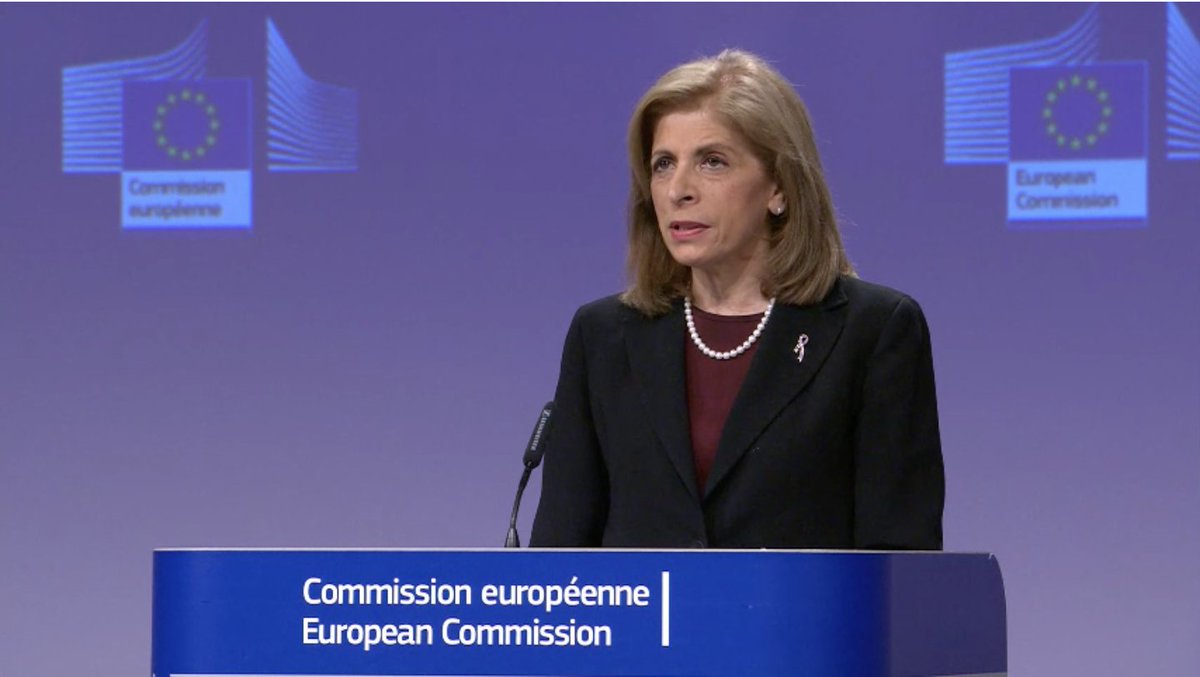
Barnstorming press conference from EU Health Commissioner @SKyriakidesEU, responding to #AstraZeneca suggestion UK gets vaccine priority because it signed deal earlier.
"In our contract it is not specified any country, or the UK, has priority because it signed earlier."
"In our contract it is not specified any country, or the UK, has priority because it signed earlier."

"Let me be crystal clear: the 27 EU member states are united AstraZeneca needs to deliver on its commitments in our agreement. We are in a pandemic."
"The view that the company is not obliged to deliver because we signed a best effort agreement is neither correct or acceptable."
"The view that the company is not obliged to deliver because we signed a best effort agreement is neither correct or acceptable."
"We reject the logic of first-come-first-served. That may work at the nieghbourhood butchers, but not in contracts," says the EU's health chief.
"There is no priority clause in the advance purchase agreement, and no hierarchy of the 4 production plants - 2 in EU and 2 in UK."
"There is no priority clause in the advance purchase agreement, and no hierarchy of the 4 production plants - 2 in EU and 2 in UK."
The crux of the objection is this:
The Commission believes AstraZeneca has prioritised the UK by splitting production process into 2 UK plants and 2 EU plants, in violation of the contract signed with the EU.
The Commission believes AstraZeneca has prioritised the UK by splitting production process into 2 UK plants and 2 EU plants, in violation of the contract signed with the EU.
Asked whether AstraZeneca moved doses made in EU factories over to the UK, Kyriakides says this:
"No company should be under any illusion that we don't have the means to understand what is happening."
Seems to suggest, 'If AstraZeneca doesn't tell us, we will find out'.
"No company should be under any illusion that we don't have the means to understand what is happening."
Seems to suggest, 'If AstraZeneca doesn't tell us, we will find out'.
• • •
Missing some Tweet in this thread? You can try to
force a refresh




